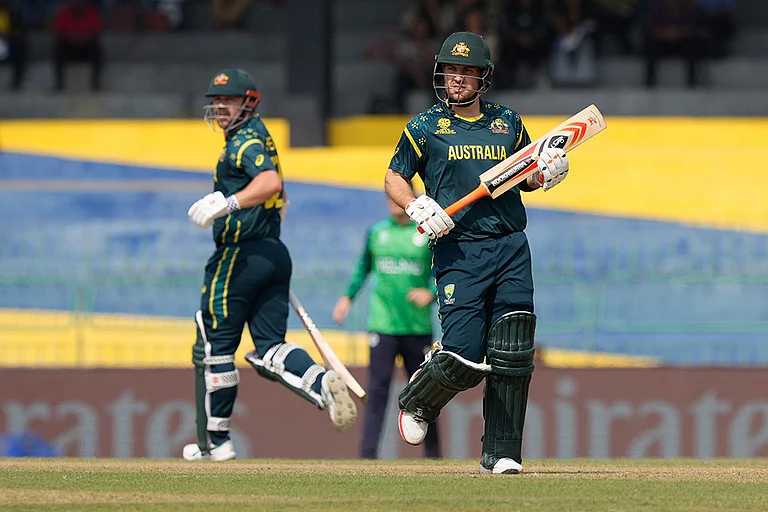The head of Russian proxy forces in eastern Ukraine's Donetsk region has sent a message to North Korean leader Kim Jong Un calling for cooperation amid signs the North is considering sending labourers for restoration projects in Russian-occupied regions of Ukraine.
North Korea last month became one of the few nations in the world to recognise the independence of Donetsk and Luhansk, another Russian-backed separatist region in eastern Ukraine, prompting Kyiv to cut off diplomatic ties with Pyongyang.
There are indications North Korea is reviewing plans to send workers for restoration projects in those regions, which could help its economy but run against UN Security Council sanctions over its nuclear weapons and ballistic missiles programme.
In his comments sent Monday, Donetsk separatist leader Denis Pushilin expressed hope that his Moscow-backed republic and North Korea could achieve “equally beneficial bilateral cooperation agreeing with the interests” of their people, the North's official Korean Central News Agency said Wednesday.
Donetsk's foreign ministry has said its ambassador to Russia, Olga Makeeva, met with North Korean ambassador to Russia Sin Hong Chol in Moscow on July 29 to discuss economic cooperation. According to the ministry, Sin then said there would be “great potential” for bilateral cooperation in trade and the “field of labor migration” following North Korea's easing of pandemic border controls.
North Korea is reportedly having similar discussions with Luhansk.
In 2017, Russia backed sanctions imposed by the UN Security Council in response to a North Korean long-range missile test that required member states to repatriate all North Korean workers from their territories within 24 months.
US State Department spokesperson Ned Price last month criticized Russian suggestions that North Korean workers could be employed for restoration projects in Russian-occupied regions of Ukraine, saying that such arrangements would be “an affront to the sovereignty of Ukraine.”
Price was referring to comments by Russian Ambassador to North Korea Alexander Matsegora, who told the Tass news agency that North Korean construction workers would potentially provide “very serious help” in rebuilding the Donbas region.
Pushilin's message to Kim was timed for the Aug. 15 anniversary of the Korean Peninsula's liberation from Japanese colonial rule at the end of World War II. He congratulated Kim over the anniversary and insisted that the “people of the Donbas region, too, are fighting to regain their freedom and justice of history today just as the Korean people did 77 years ago,” KCNA said.
The report didn't say whether Kim sent a message to Pushilin in response.
Luhansk and Donetsk together make up the Donbas region, a mostly Russian-speaking region of steel factories, mines and other industries in Ukraine's east. Separatists have controlled parts of both provinces since 2014, but Russian President Vladimir Putin recognized their independence only shortly before Russia invaded Ukraine in February. Syria is the only other nation that has recognized their independence.
North Korea has repeatedly blamed the United States for the crisis in Ukraine, saying the West's “hegemonic policy” justified Russian military actions in Ukraine to protect itself.
Kim has also been exploiting a division in the UN Security Council that has deepened over Russia's invasion of Ukraine to accelerate his weapons development as he tries to cement the North as a nuclear power and negotiate a removal of crippling US-led sanctions from a position of strength.
North Korea has test-fired more than 30 missiles in 2022 alone, including its first flight test of an intercontinental ballistic missile in nearly five years. There are also indications the North is restoring tunnels at a nuclear testing site that was last active in 2017 in possible preparations to resume nuclear explosive tests.





















